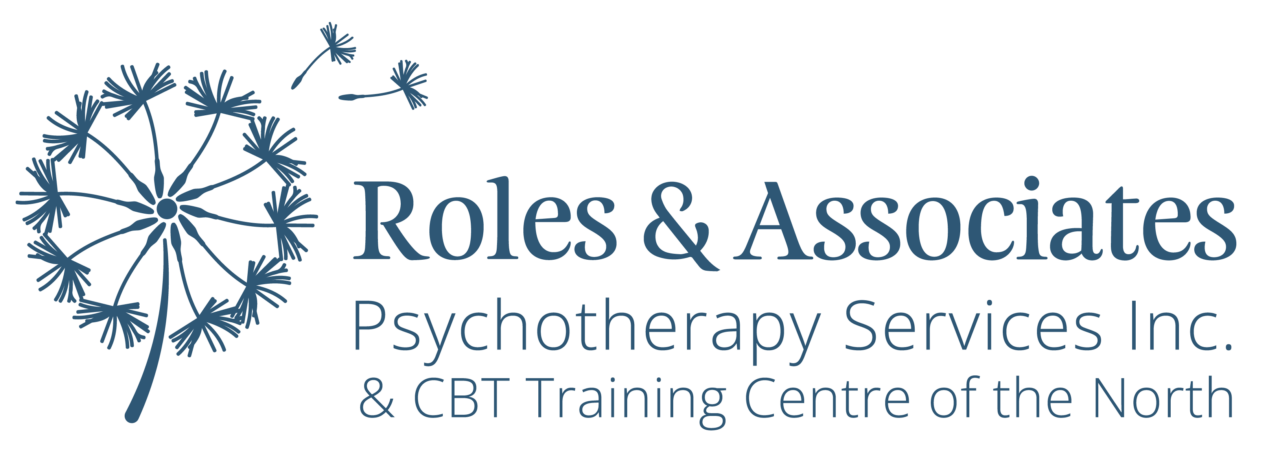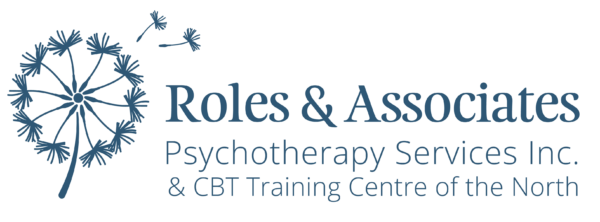You deserve to be happy and healthy. How to find the right therapist for you.
Psychotherapist Stacey Roles RN PhD gives some advice on what to look for to ensure therapy is a success.

Are you struggling with an emotional or mental health issue that is impacting your job and relationships? A good therapist can help you develop skills that allow you to move forward in your life. You may have considered contacting a therapist, but how do you find the right one for you?
Stacey Roles, Psychotherapist RN PhD is the owner of Roles and Associates Psychotherapy Services Inc. which has offices in Sudbury, Elliot Lake, Manitoulin, and Sault Ste. Marie.
“Oftentimes patients will choose a therapist based on whether they are a man or a woman or based on the therapist’s age. I want to educate people on the importance of going a layer deeper to look at the credentials within the therapy world. There is a big difference between counselling and psychotherapy.”
Stacey Roles, Psychotherapist RN PhD
Find a therapist with the right credentials
The first step in finding a therapist is to determine the discipline of the psychotherapists, for example, are they a nurse, a social worker, a psychologist, etc. Ask if the therapist is regulated, as this will help you to determine if they report to a regulatory body.
There are six regulatory colleges within the Province of Ontario permitted to practice the Controlled Act of Psychotherapy and to use the title psychotherapist along with their college credentials.
The regulatory colleges are:
- College of nurses
- Colleges of physicians and surgeons
- College of social workers and social service workers
- College of psychotherapists
- College of occupational therapists
- College of psychologists
The next step is to understand that within psychotherapy, there are certain gold standard treatments recommended for certain disorders or symptoms. For example, to treat Post Traumatic Stress Disorder (PTSD), there are three evidence-based treatments that exist.
- Prolonged exposure (PE) therapy
- EMDR
- Cognitive processing therapy
Roles points out, “If you’re going to a therapist to treat a history of trauma, it might be fine if they don’t practice the three gold standard therapies. But if you need treatment for PTSD, you need to find a therapist who is skilled in using one or more of these gold standard therapies and who has had intensive training.”
The same consideration applies when deciding on treatment for other disorders. Roles says, “There are very specific types of evidence-based treatments that exist and often clients won’t know that when they’re looking for a therapist. When deciding on a therapist you will want to identify the issue you’re struggling with, such as anxiety, depression, an eating disorder, or PTSD, and find out what interventions they use to treat the disorders and if they are the best treatments for that disorder.” It’s the same approach you would use when deciding on a specialist to treat a medical problem.
Ask the right questions
Make sure you ask the right questions.
- Are they a licensed practitioner in the field?
- How many years have they been in practice?
- How much training, experience, and supervision that they had treating your particular issue?
- What is their specialty?
- What is their approach?
The Roles & Associates team has a wide range of expertise
Roles & Associates Psychotherapy Services Inc. has a 15-member clinician team with a wide range of specialties and experience. Roles says, “Where we differ from many others is that within the team, we have a member who has a specialty in most disorders that someone might present with.”
Each member of the team is regulated and also,
- All are certified in Cognitive Behavioural Therapy.
- All are trained in treating PTSD with Prolonged Exposure Therapy, one of the gold standard treatments.
- Many are trained in all three gold standard therapies for PTSD.
- Many specialize in issues affecting members of the 2SLBGTQ+ community and indigenous populations.
- Others have extensive experience with children, couples, and families.
- Others have experience with emotional pain and bereavement.
Roles adds, “About half of our team is highly trained in eating disorders which many out-patient organizations do not do. This has been a large treatment gap in northern Ontario for many years.”
She goes on to say how important it is for her team to help each client find the right therapist with the right skill set. “We will help you get the right fit for a therapist because we don’t want clients coming in and feeling hopeless because they have previously seen other therapists with little results. Patients are often at a point of despair thinking that nothing is going to work, often because their previous therapist wasn’t qualified to treat the disorder the patient presented with or wasn’t using the right treatment for the issue. We want to mitigate this barrier as much as possible.”
Compatibility is important
Go to the Roles & Associates Psychotherapy Services website to review bios and view videos of each therapist. You will see their mannerisms, their approach, and the way they speak to clients, which can be very helpful in deciding which therapist is the best fit.
Roles says, “In mental health, if there is no rapport in the therapeutic relationship, the therapy will not be as effective.” When reviewing the website, keep in mind that all the clinicians can do virtual therapy as well and can see anyone within Ontario even if they aren’t physically based in your geographic location.
The next step
Family Physicians, Nurse Practitioners, and Psychiatrists will refer patients to Roles & Associates, but a medical referral is not required. They accept clients through self referral. They take payments from Non-Insured Health Benefits (NIHB) meaning anyone with an Indigenous status number will receive 20 covered sessions a year. They also accept referrals from Victims’ Services (VQRP) from any of your local victims’ services offices.
The team at Roles & Associates also accept private insurance, EAP or staff wellness programs in which they have a contract with as well as out of pocket payments. You can send an email to the intake team or call the office directly and the staff will review cost and insurance coverage with you.
Staff Wellness Programs
Because of the high level of qualifications and diversity of specialties present in the associates on Roles’ team, various companies will call on Roles & Associates to develop contracts for their EAP or staff wellness programs.
Roles & Associates have expertise in getting people back to work sooner. They also conduct various workshops to promote workplace wellness.
Training and consultation
Roles & Associates also offer training in a variety of modalities, including Cognitive Behavioural Therapy and Compassion Focused Therapy along with other clinical requests such as documentation practices for example.
They also provide presentations for family health teams, physician and NP offices to help staff identify mental health presentations or when to refer a patient after diagnosis. Roles says, “I’m one of the few individuals in Ontario that is certified as a trainer and consultant with the Academy of Cognitive Behavioural Therapy. I’m hired by organizations across Canada to train, supervise, and consult with their mental health clinicians to help them move from novice to expert or to provide consultation on complex cases on an individual or ongoing basis.
Contact Roles & Associates Psychotherapy Services Inc. at (705) 929-1612 ext. 6 or visit them online, on Instagram or LinkedIn

